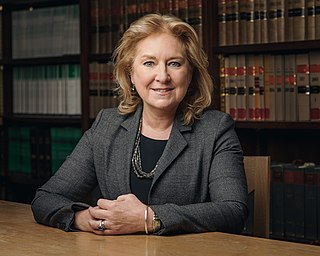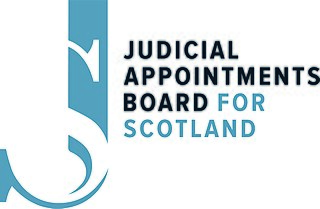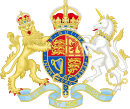
A justice of the peace (JP) is a judicial officer of a lower court, elected or appointed by means of a commission to keep the peace. In past centuries the term commissioner of the peace was often used with the same meaning. Depending on the jurisdiction, such justices dispense summary justice or merely deal with local administrative applications in common law jurisdictions. Justices of the peace are appointed or elected from the citizens of the jurisdiction in which they serve, and are usually not required to have any formal legal education in order to qualify for the office. Some jurisdictions have varying forms of training for JPs.

The Lady Chief Justice of England and Wales is the head of the judiciary of England and Wales and the president of the courts of England and Wales.

The High Court of Justiciary is the supreme criminal court in Scotland. The High Court is both a trial court and a court of appeal. As a trial court, the High Court sits on circuit at Parliament House or in the adjacent former Sheriff Court building in the Old Town in Edinburgh, or in dedicated buildings in Glasgow and Aberdeen. The High Court sometimes sits in various smaller towns in Scotland, where it uses the local sheriff court building. As an appeal court, the High Court sits only in Edinburgh. On one occasion the High Court of Justiciary sat outside Scotland, at Zeist in the Netherlands during the Pan Am Flight 103 bombing trial, as the Scottish Court in the Netherlands. At Zeist the High Court sat both as a trial court, and an appeal court for the initial appeal by Abdelbaset al-Megrahi.

The courts of Scotland are responsible for administration of justice in Scotland, under statutory, common law and equitable provisions within Scots law. The courts are presided over by the judiciary of Scotland, who are the various judicial office holders responsible for issuing judgments, ensuring fair trials, and deciding on sentencing. The Court of Session is the supreme civil court of Scotland, subject to appeals to the Supreme Court of the United Kingdom, and the High Court of Justiciary is the supreme criminal court, which is only subject to the authority of the Supreme Court of the United Kingdom on devolution issues and human rights compatibility issues.

The Supreme Court of the United Kingdom is the final court of appeal in the United Kingdom for all civil cases, and for criminal cases originating in England, Wales and Northern Ireland. As the United Kingdom's highest appellate court for these matters, it hears cases of the greatest public or constitutional importance affecting the whole population.

The chief justice of Ireland is the president of the Supreme Court of Ireland. The chief justice is the highest judicial office and most senior judge in Ireland. The role includes constitutional and administrative duties, in addition to taking part in ordinary judicial proceedings.

The High Court of the Hong Kong Special Administrative Region is a part of the legal system of Hong Kong. It consists of the Court of Appeal and the Court of First Instance; it deals with criminal and civil cases which have risen beyond the lower courts. It is a superior court of record of unlimited civil and criminal jurisdiction. It was named the Supreme Court before 1997. Though previously named the Supreme Court, this Court has long been the local equivalent to the Senior Courts of England and Wales and has never been vested with the power of final adjudication.
The Judicial Appointments Commission (JAC) is an independent commission that selects candidates for judicial office in courts and tribunals in England and Wales and for some tribunals whose jurisdiction extends to Scotland or Northern Ireland.

There are various levels of judiciary in England and Wales—different types of courts have different styles of judges. They also form a strict hierarchy of importance, in line with the order of the courts in which they sit, so that judges of the Court of Appeal of England and Wales are given more weight than district judges sitting in county courts and magistrates' courts. On 1 April 2020 there were 3,174 judges in post in England and Wales. Some judges with United Kingdom-wide jurisdiction also sit in England and Wales, particularly Justices of the United Kingdom Supreme Court and members of the tribunals judiciary.

The Judicial Appointments Board for Scotland is an advisory non-departmental public body of the Scottish Government responsible for making recommendations on appointments to certain offices of the judiciary of Scotland. It was established in June 2002 on a non-statutory, ad hoc, basis by the Scottish Government, and was given statutory authority by the Judiciary and Courts (Scotland) Act 2008.

The Scottish Land Court is a Scottish court of law based in Edinburgh with subject-matter jurisdiction covering disputes between landlords and tenants relating to agricultural tenancies, and matters related to crofts and crofters. The Scottish Land Court is both a trial court and an appeal court; hearings at first-instance are often heard by a Divisional Court of one of the Agricultural Members advised by the Principal Clerk. Decisions of the Divisional Court can be appealed to the Full Court, which will consist of at least one legally qualified judicial member and the remaining Agricultural Member. Some cases are heard at first-instance by the Full Court, and these cases may be appealed to the Inner House of the Court of Session.

The judicial officers of the Republic of Singapore work in the Supreme Court and the State Courts to hear and determine disputes between litigants in civil cases and, in criminal matters, to determine the liability of accused persons and their sentences if they are convicted.

In the United Kingdom, a tribunal is a specialist court with jurisdiction over a certain area of civil law. They are generally designed to be more informal and accessible than 'traditional' courts.

The Judges' Council is a body in England and Wales that, representing the judiciary, advises the Lord Chief Justice on judicial matters. It has its historical roots in the original Council of the Judges of the Supreme Court, created by the Judicature Act 1873 to oversee the new Supreme Court of Judicature. This body initially met regularly, reforming the procedure used by the circuit courts, and the new High Court of Justice but met less regularly as time went on, meeting only twice between 1900 and 1907, with a gap of ten years between meetings in 1940 and 1950 respectively. After relative inactivity, it was eventually wound up through the Supreme Court Act 1981, which contained no provisions for its continued existence, something Denis Dobson attributes to newer bodies which performed the duties the Council had originally been created to do.

Justices of the Supreme Court of the United Kingdom are the judges of the Supreme Court of the United Kingdom other than the president and the deputy president of the court. The Supreme Court is the highest court of the United Kingdom for all civil cases, and for criminal cases from the jurisdictions of England and Wales and Northern Ireland. Judges are appointed by the British monarch on the advice of the prime minister, who receives recommendations from a selection commission.

The judiciary of Scotland are the judicial office holders who sit in the courts of Scotland and make decisions in both civil and criminal cases. Judges make sure that cases and verdicts are within the parameters set by Scots law, and they must hand down appropriate judgments and sentences. Judicial independence is guaranteed in law, with a legal duty on Scottish Ministers, the Lord Advocate and the Members of the Scottish Parliament to uphold judicial independence, and barring them from influencing the judges through any form of special access.
Sir Patrick Coghlin, PC, is a retired member of the Court of Appeal of Northern Ireland.

The Judicial Service Commission (JSC) of Kenya is an independent Commission established under Article 171 of the Constitution of Kenya. Its mandate as stipulated in Article 172 of the Constitution is to promote and facilitate the independence and accountability of the Judiciary and the efficient, effective and transparent administration of justice. The commission has 11 members with the initial team appointed in December 2010.
The Judiciary of Sri Lanka are the civil and criminal courts responsible for the administration of justice in Sri Lanka. The Constitution of Sri Lanka defines courts as independent institutions within the traditional framework of checks and balances. They apply Sri Lankan Law which is an amalgam of English common law, Roman-Dutch civil law and Customary Law; and are established under the Judicature Act No 02 of 1978 of the Parliament of Sri Lanka.

The National Judicial Appointments Commission (NJAC) was a proposed body which would have been responsible for the recruitment, appointment and transfer of judicial officers, legal officers and legal employees under the government of India and in all state governments of India. The commission was established by amending the Constitution of India through the 99th constitution amendment with the Constitution (Ninety-Ninth Amendment) Act, 2014 or 99th Constitutional Amendment Act-2014 passed by the Lok Sabha on 13 August 2014 and by the Rajya Sabha on 14 August 2014. The NJAC would have replaced the collegium system for the appointment of judges as invoked by the Supreme Court via judicial fiat by a new system. Along with the Constitution Amendment Act, the National Judicial Appointments Commission Act, 2014, was also passed by the Parliament of India to regulate the functions of the National Judicial Appointments Commission. The NJAC Bill and the Constitutional Amendment Bill, was ratified by 16 of the state legislatures in India, and subsequently assented by the President of India Pranab Mukherjee on 31 December 2014. The NJAC Act and the Constitutional Amendment Act came into force from 13 April 2015.














